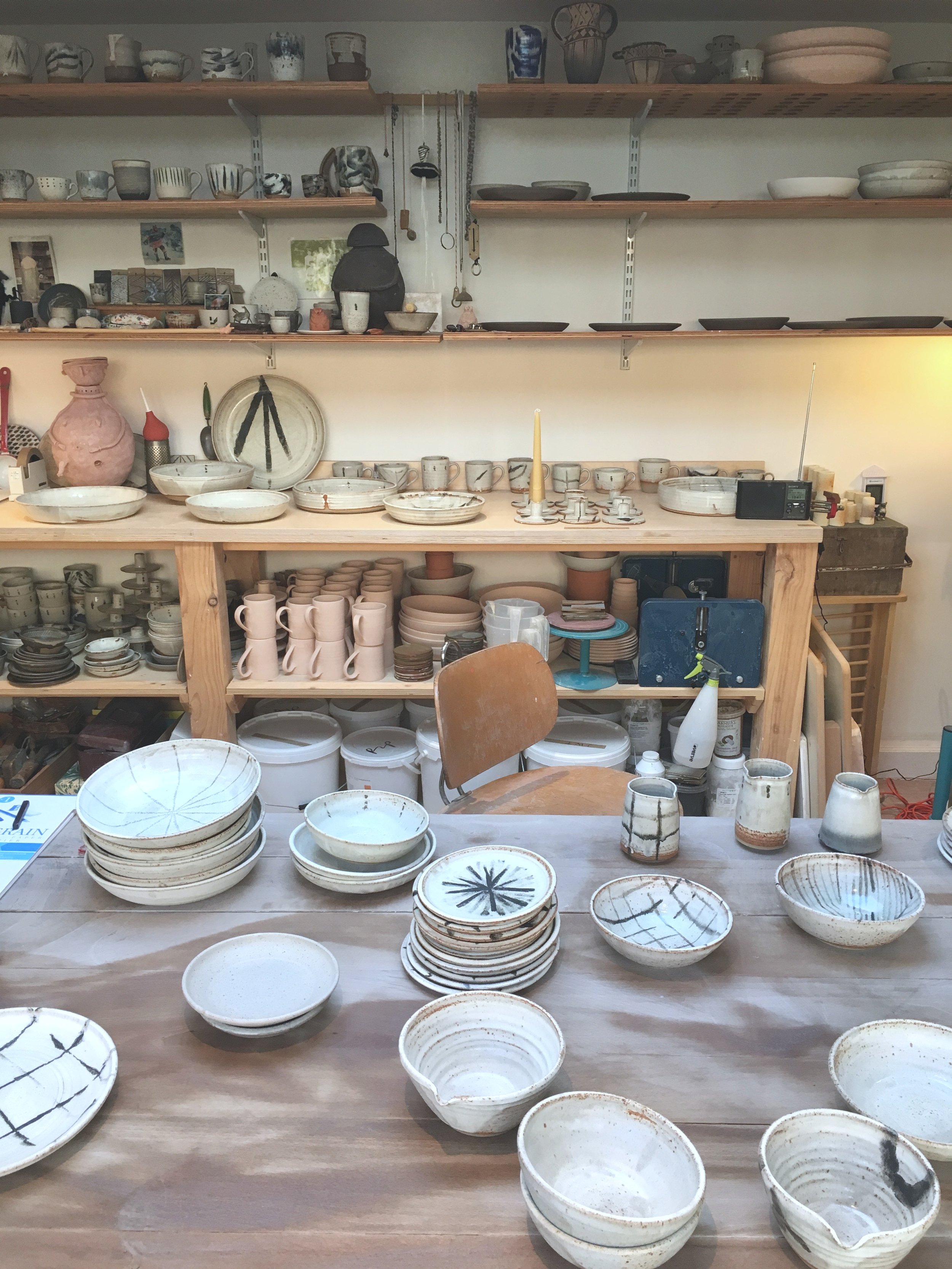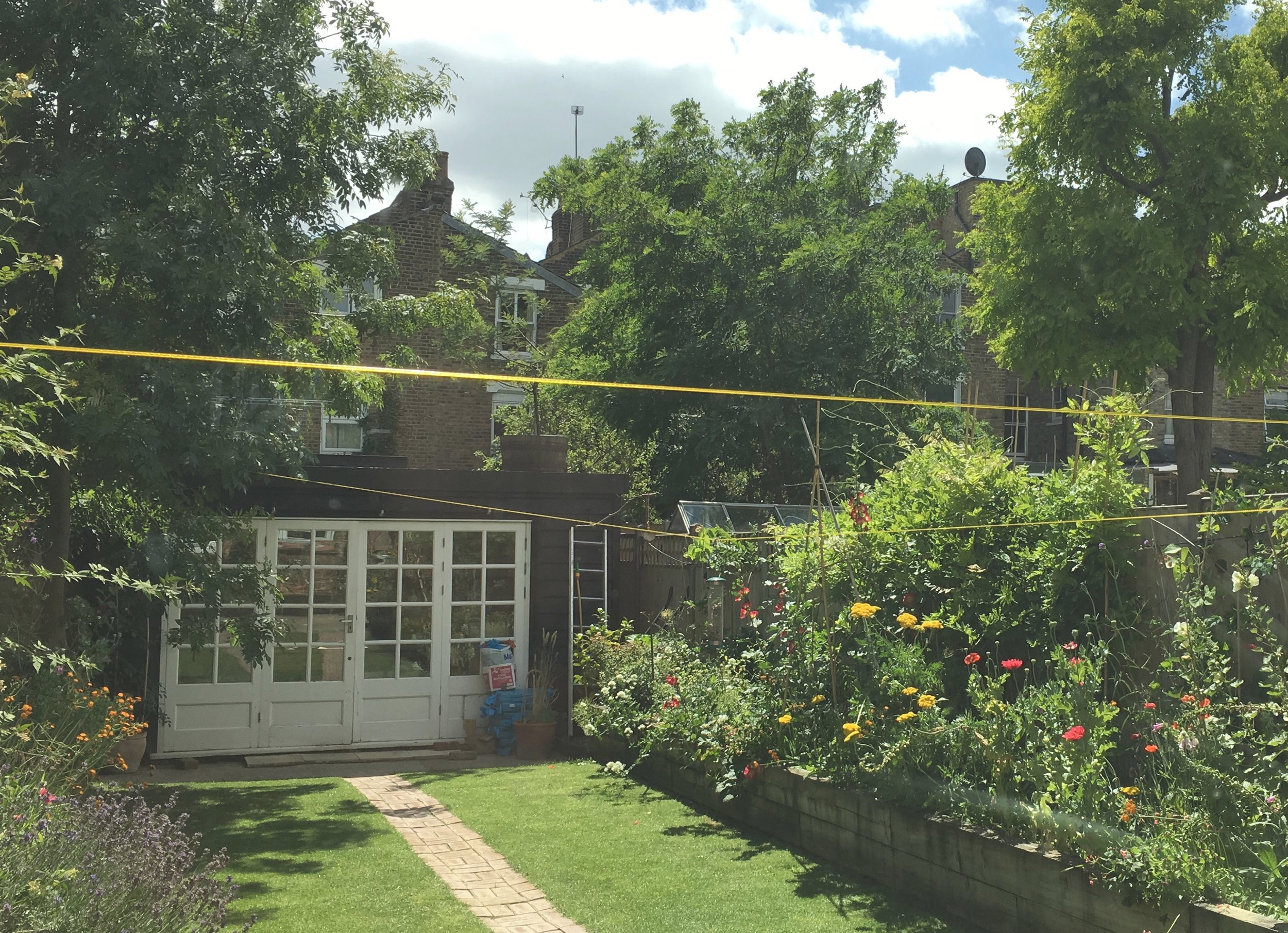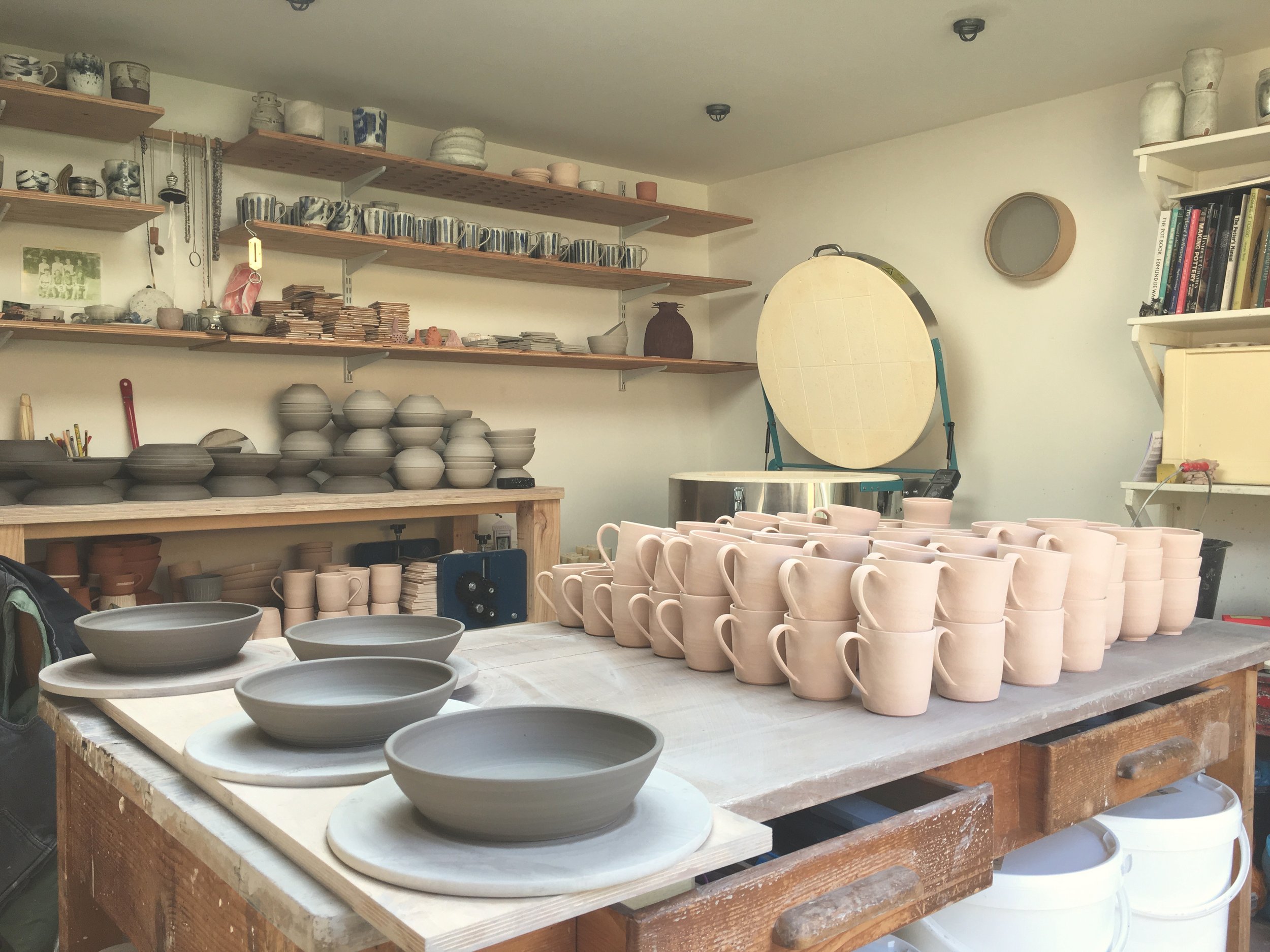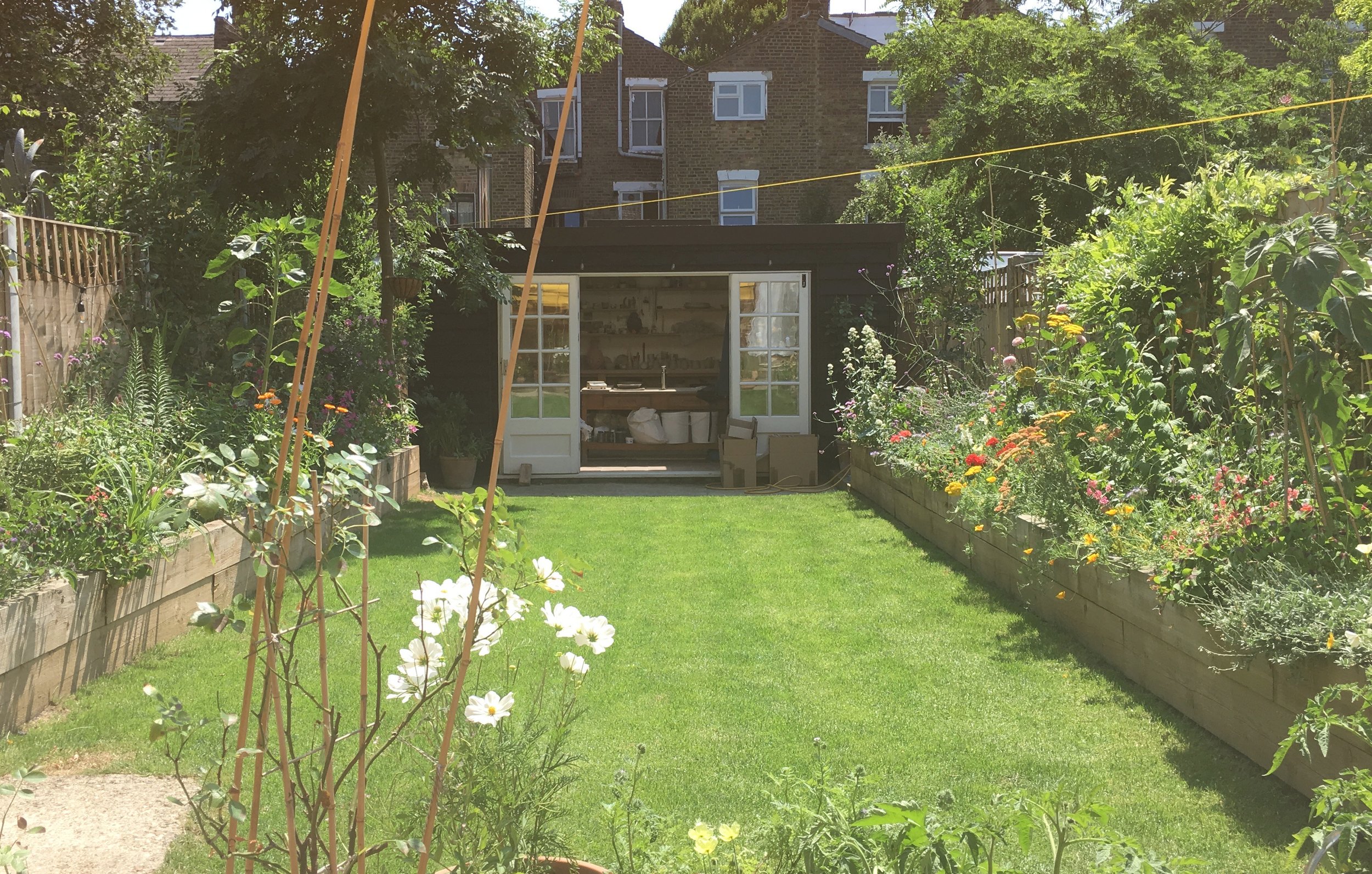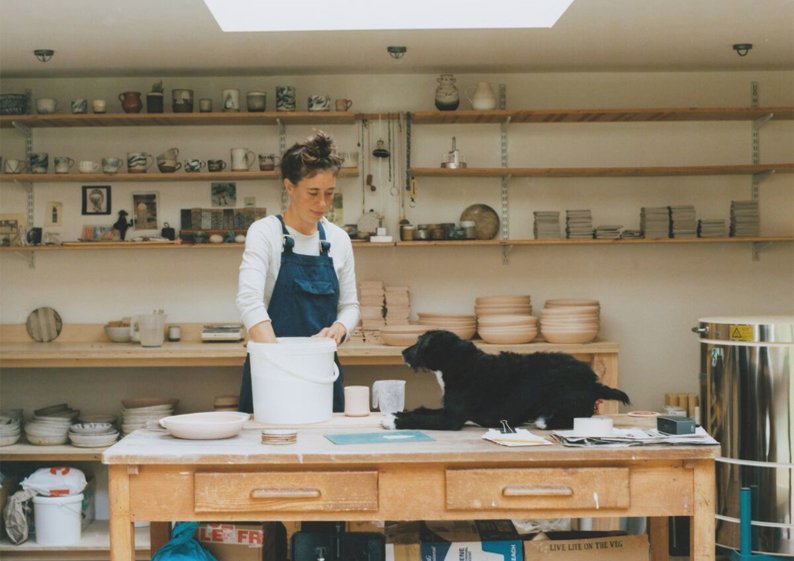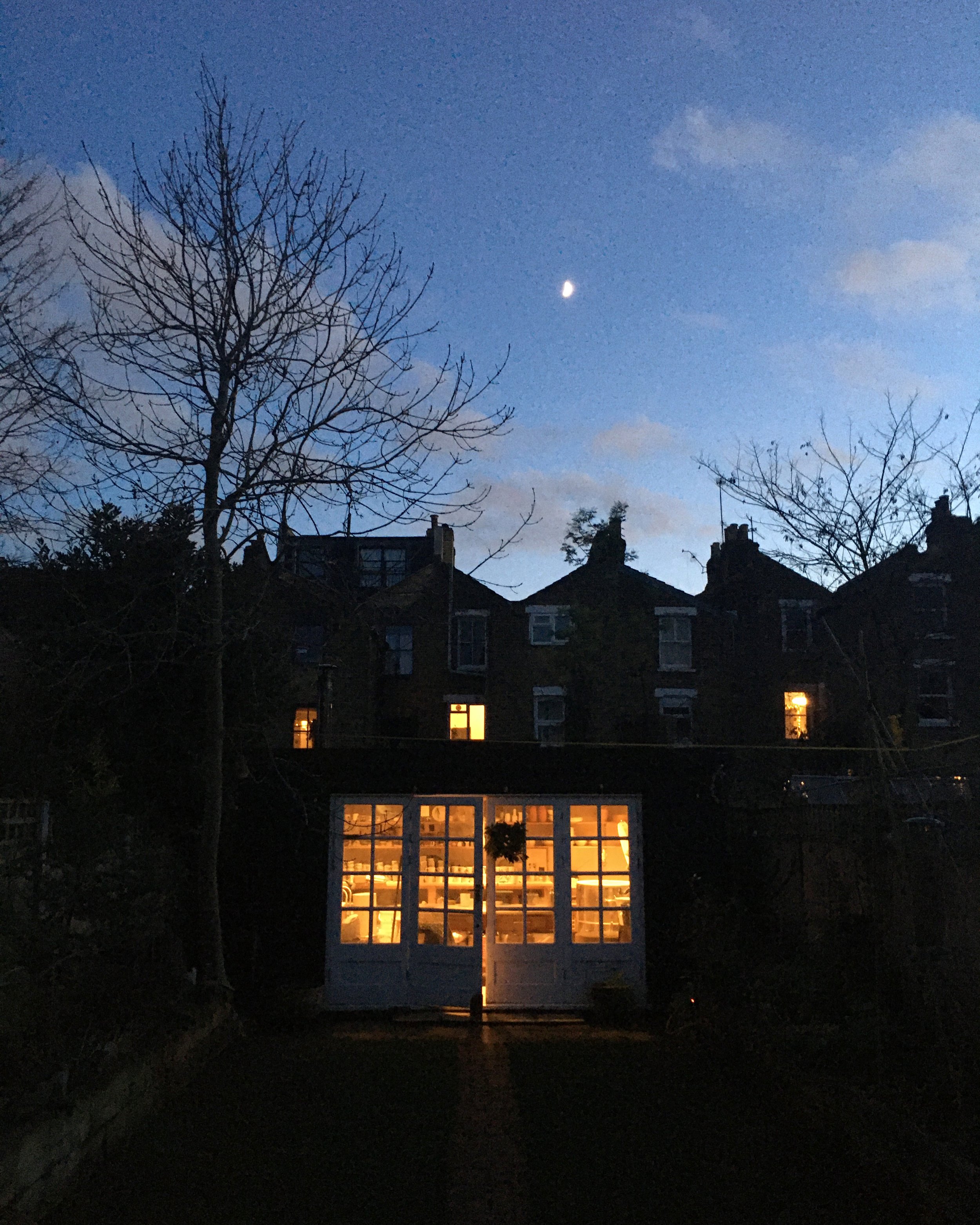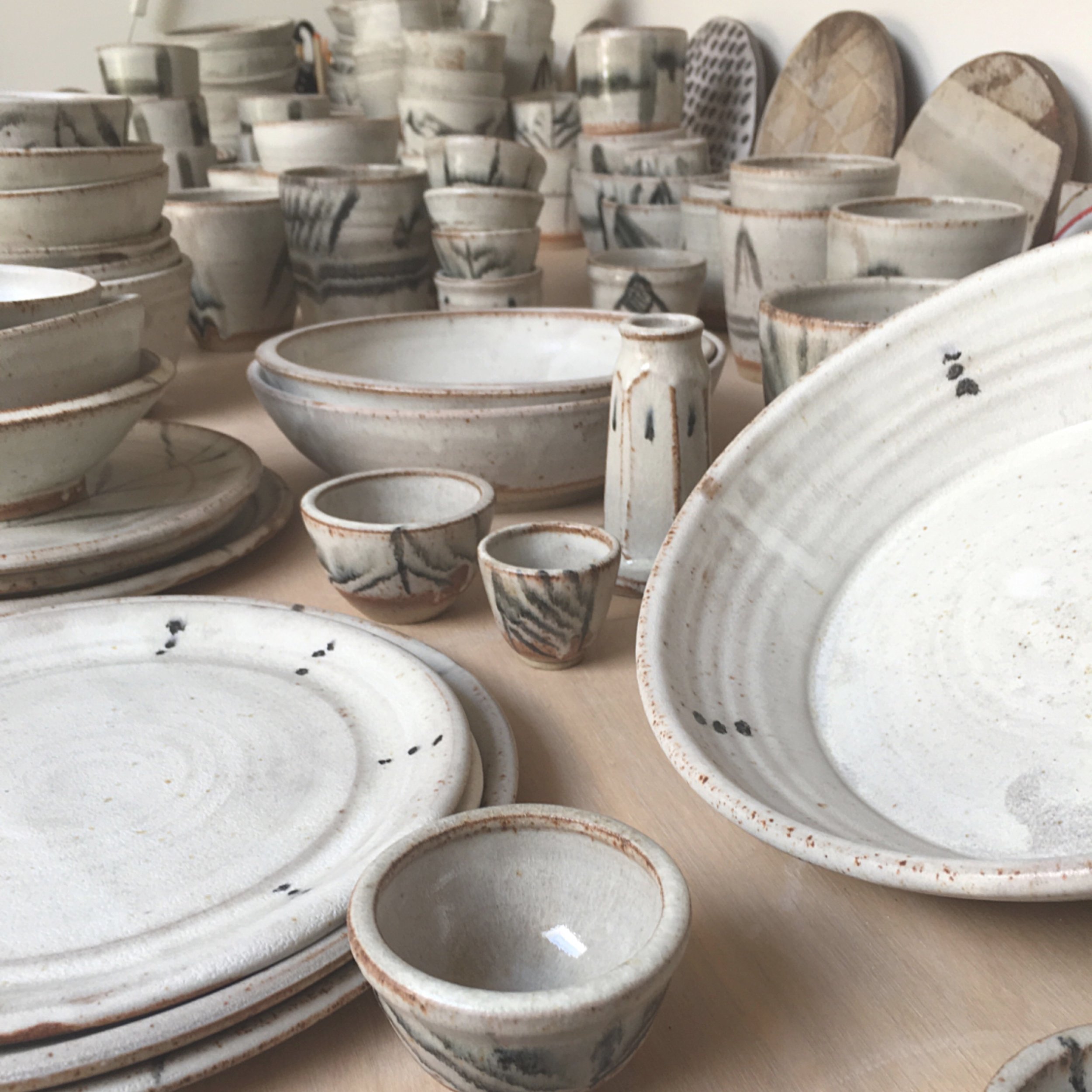‘The studio feels different to my house, I feel more connected to being outside, which I love!’
In 2016 we were contacted by Pip Hartle, a brilliant potter based in East London. Pip wanted to build a pottery studio for her new home, a space which was both functional, aesthetically pleasing and conveniently situated at the end of her garden.
If you don’t know Pip’s work, you should take a look, Pip creates textile pattern inspired stoneware ceramics, her work is both functional and beautifully unique. Pip’s stockists include the Tate shop and Toast. Late last year we chatted with Pip to find out a little more about her pottery process and to see how she’s getting along with her Trew Turner studio.
How did you hear about Trew Turner?
I was a member of a shared studio space, The Kiln Rooms, in Peckham and friend and fellow member Harriet mentioned she had a friend (Liam) who built garden studios so she put me in touch.
How long have you had your garden studio?
It has been four years now.
Did you design your studio? Did you have something particular in mind?
I collected a range of images of other studios I liked. Together with the dimensions of the garden and what I could achieve without planning permission I sent over my ideas to Liam. I loved the tall Fishermans huts in Hastings, I knew I couldn't get that height but I used them as inspiration for the materials and finish. I bought the doors on eBay and we then worked around them.
What impact has having a garden studio had on your business and your working life?
It has definitely given me the space and time to evolve as a potter. I had outgrown the shared studio and was fed up with the commute. I feel very fortunate to be able to make every day in my own space. The luxury of being in the garden is a big aspect too. The studio feels different to my house and I feel more connected to being outside, which I love.
For anyone considering a garden studio, what are the key things for people to look out for?
Find someone you can work well with to help you build it. I found Liam to be so helpful and patient when it came to making decisions and he had a wealth of knowledge when it came to materials etc. It's hard to know how a space will work before it exists but try and figure some of that stuff out.
How have you found your work life balance since moving your business into your garden studio?
The line between life and work is definitely blurred. I rarely give myself a proper day off and even when I do I still go into the studio and do some tinkering of some description. But I also do not work regular hours so I feel it all balances out in the end. I am lucky that I absolutely love what I do and so work and life are the same thing for me.
Your ceramics are beautiful, we love the mark making and flow of your brush strokes. What are your main influences?
I actually studied Textiles at university so I have a deep fascination with textile patterns from around the world. Working with something dug from the ground, you can't help but be inspired by natural materials and landscapes. An exquisite pebble, a birds egg, a clump of moss - these are my favourite things.
What's your making process?
I tend to design as I go, new ideas emerge over time. If I am throwing a number of the same thing I try and throw a few different shape at the end of the day. Or I might have seen a shape of a pot in a museum or in a book that I'd like to try. I work with a pretty limited pallet so I am always trying to push what I can achieve within those limits. There is a lot of trial and error. I mostly make functional work, but every now and then I will hand build for fun and explore new techniques.
For anyone looking to start pottery, where would you advise they start?
There are so many places offering taster sessions or beginners courses. I went to Morley College, and the facilities and teaching were excellent. Initially I'd say just find out if you enjoy the process and material. Often beginners focus on an end product or get frustrated they can't throw on the wheel after 1 session. Pottery is a very slow process that takes a long time to master.
What's a day in your studio like?
I almost always walk down to the studio as soon as I get up so I can figure out how my day is going to take shape. If the kiln has been on overnight and is ready to be opened I have to look as soon as I can. That excitement I don't think will ever fade. If its cold I get a fire going so it will be toasty when I get back from walking the dog. There are so many different aspects to making pottery, the actual making of the pots is a tiny part of the whole process really. Spending a lot of time on my own I also have to really curate what I listen to, so its a combination of radio, audio books, podcasts and music. Pottery is a very physical job and involves a lot of cleaning!
Thanks for your time Pip!
Check out pip’s beautiful pottery over at www.piphartle.com and follow her on instagram @piphartle.


